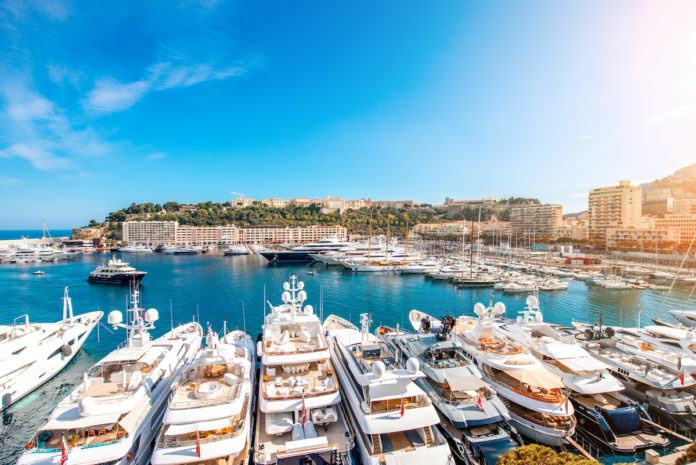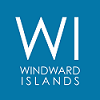
Everything you need to know about a luxury crewed boat rental.
Whether you are looking for a family vacation in the Caribbean, whether you are looking for adventure or a safe and secure environment to party with friends, Windward Islands allows you to organize your stay according to the planning, itinerary, and activities of your choice in absolute luxury. You will enjoy an unparalleled level of comfort and service. You will then be able to truly escape and access unique and isolated places.
It depends on your needs and desires. If you want to relax and unwind, you can opt for a yacht with a spa and masseuse on board. If you are planning a family vacation and want to enjoy a lot of activities, choose a yacht with games on board, water games, a cinema room. If you are a sailing lover we have a range of luxury sailing yachts that will please you.
Your Windward Islands consultant can help you identify the yacht you want.
Your yacht must meet your needs in terms of size and capacity. A modern motor yacht will, for example, be suitable for a family charter by offering beautiful spaces. A sailing yacht will be a fantastic choice for a boating enthusiast.
The price includes the charter of the yacht with its insurance as well as its nautical games (jet ski, seabob, kayak, etc.) and the crew’s salary.
Some contracts include food and up to 4 hours of engine operation.
For others, in addition to the rental price, you may be required to pay VAT (the rate varies depending on the sailing area) and an APA to cover the cost of food and beverages, fuel, port and mooring fees, communication, or delivery costs.
Depending on the type of contract used (MYBA, CYBA or AYCA), the price usually covers only the yacht charter, crew’s salary and the owner’s insurance. The rest is extra, including provisions and fuel.
The Advance Provisioning Allowance (APA) is charged in advance to cover such expenses. It is passed on to the captain who is strictly responsible for the expenses.
At the end of the stay, the captain will present a detailed summary of the expenses. If this APA allocation has not been fully spent, the remaining funds will be refunded.
Other expenses may include taxes, VAT and delivery charges at a given port of embarkation/disembarkation. Confirm with your broker the expenses associated with your charter.
The Advance Provisioning Allowance (APA) is due at the time of final charter payment. This amount is generally equal to 25% of the total amount of the charter, but maybe 30% in cases of motor yachts. These funds, intended to cover operating costs such as fuel, food, beverages, port fees, and one-time incidental expenses, will be remitted to the captain before the start of your cruise. He will ensure that your yacht is fully fueled and provisioned when you board. Although an updated statement of accounts may be requested at any time during your cruise, expenses will normally be presented by your captain at the end of the cruise.
If during the cruise, expenses exceed the amount already paid, additional cash funds will be required immediately. All unpaid invoices must be paid cash before final disembarkation. Of course, any credit remaining at the end of your cruise will be fully refunded. Upon request, transfers to and from the yacht can be made by Windward Islands or by your captain, the payment of which will be deducted from your APA. You can use our APA calculator at the end of the FAQ.
Short-term charter agreements must be subject to VAT at the rate in force in the European Member State where the customer actually receives access to the transportation means, according European laws. Yacht owning companies are required to register for VAT in all EU countries where the charters will start, or to designate a fiscal agent to collect and pay VAT on charters. Therefore VAT needs to be paid in the country where the charter starts and may depends on your itinerary.
A deposit of 50% of the total amount of the cruise is payable at the signature of the contract. This confirms your reservation. The remaining 50%, plus the provisioning allowance (APA), as well as taxes, delivery/redelivery charges, and any agreed-upon additional costs, are payable one month before the start of the cruise.
Due to the paucity of boats available for charter in some region and the fact that yachts tend to leave an area quickly, some destinations must be reserved sooner than usual. These places include, for instance, French Polynesia and Fiji, for which we advise making reservations at least 24 to 36 months in advance.
It can be necessary to make reservations 10 to 12 months in advance in order to find the right boat in the right location during busy times like Christmas, New Year’s Eve, and Easter in the Caribbean. Especially if your broker must check whether it is possible to deliver the boat to the desired port of embarkation.
In general, we advise making reservations at least 10 to 6 months in advance for the Mediterranean season so that you have a choice and have enough time to plan and settle your entire group.
Be ready to be flexible if you’re searching for a good bargain opportunity! Some popular yachts quickly sell out!
We strongly recommend that charterers take out cancellation insurance to protect their investment if unforeseen circumstances prevent or reduce their charter. Our brokers will be pleased to assist you in taking out any policy not covered by the basic cruise agreement. You are however insured while aboard your chartered yachts during the time of your rental.
There is no minimum age for charter clients. Yachts are an excellent option for a family vacation with children. They offer a wide range of activities and a variety of safe and comfortable water games. Some yachts are more suitable for children than others. Ask your charter broker for advice regarding the age of the children and your charter plans. However, the kids must always be watched over, and your staff won’t do that for you (unless a nanny is hired).
Some do! It depends on the yacht. If this is an important point for you, your advisor can help you identify yachts that will accept all members of your family.
The most popular boating destinations vary according to the season.
In the summertime, the Mediterranean is the most popular Northern Hemisphere destination, including the French Riviera, Corsica, the Balearic Islands, Sardinia, the Greek islands, and Croatia.
During the winter, the Bahamas and the Caribbean are the first charter spots.
Private aviation packages are available for those who wish to avoid the hassle of commercial transits and crowded airports. Your charter broker can help you make a reservation with a private aviation company in a safe, hygienic, and comfortable manner.
The chef and the yacht’s hostess team purchase all provisions for the yacht.
They use the food preference sheet (what the guests like and dislike) filled out by the guests before the trip to advise them on what to buy. Food is purchased through the Advanced Provisioning Allowance (APA), an advance covering expenses such as food, beverages, fuel, ….. The APA allows you to enjoy your vacation without worrying about expenses and other financial matters.
Some yachts allow the wearing of shoes on board, as long as they are new and not worn ashore during the charter.
Very few yachts allow smoking indoors, but some may allow smoking in designated outdoor areas. If this is important to you, please mention it to your advisor beforehand.
Depending on the size of the yacht, the crew is always at the disposal of the guests throughout the charter: from the preparation of midnight snacks to your favorite cocktail and more. The crew can be present or absent (for reasons of privacy) according to your wishes. Depending on the size of the yacht you charter, you may have different crews available at different times of the day and night.
Almost all yachts offer WiFi, but this is a point to be discussed with your advisor and confirmed with the captain of the boat. As far as the cell phone service is concerned, your service provider will have to confirm if it covers the destination of the cruise.
This situation occurs fairly regularly on board a yacht and is subject to the captain’s discretion and the availability of mooring in the area. Talk to the captain about your desire for change and he or she will do their best to accommodate.
Each yacht has its own cleaning, disinfection and hygiene protocols. As a general rule, yachts are exceptionally clean and meet rigorous standards. Your advisor and the yacht captain will be able to provide you with more information about the exact protocol on board.
The crew is trained in first aid and CPR, with the captain having advanced medical training. The boats can carry a wide range of lifesaving equipment and many have telemedicine contracts linking them to doctors ashore.
The advantage of chartering a yacht is that it is often possible to change your itinerary and head towards the sun. A rainy day at the port also offers the opportunity to explore the stores, bars, and restaurants.
If you wish to extend your rental, contact your advisor who will check schedules and availability and prepare the necessary documents.
Should I consider travel insurance for my charter? Although it is not mandatory, a cancellation insurance is strongly recommended.
If you appreciate the service provided by your crew, you can offer them a tip. While the level is at your sole discretion, it is customary to leave a tip of 10 to 15% of the basic rental amount.
In some countries, a certificate of competency is required to participate in water activities (jet skis, wave runners and other mechanically propelled boats). Please consider which members of your group will want to use the yacht’s motorized water toys.
Please note that all costs are the responsibility of the charterer and the availability of local instructors cannot be guaranteed. Some regions completely prohibit the use of motorized water toys. The use of motorized watercraft is permitted only if the operator has the appropriate license and complies with local operating regulations. Any liability arising from non-compliance with these rules is entirely at the operator’s risk. If the yacht has diving equipment on board, it may only be used by certified divers holding a PADI license or equivalent.


